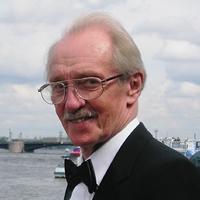
Brian Spalding revolutionized the analysis of how fluids flow—anything from air to water to blood—through computer modeling, thus initiating the application of Computational Fluid Dynamics (CFD). For decades, testing prototypes for airplane wings—or car components, or heart pumps, or HVAC systems—required building the parts and measuring how fluids flowed. Brian Spalding changed that, saving time and expense while improving safety. Spalding has spent his career developing new methods of mapping fluid movement to create the accurate models that engineering and science require.
Born in England, Spalding attended Oxford for his B.A. and M.A., graduating in 1948. He then earned his Ph.D. and Sc.D. from Cambridge in 1952 and 1966 respectively. He has taught at the Imperial College of Science, Technology and Medicine since 1954, where he is now a professor emeritus. In 1974 he founded Concentration Heat & Momentum Limited (CHAM). A world-leading consulting company with offices in more than 25 countries, CHAM helps its clients with computer simulations of fluid flow using Spalding's pioneering software.
Early in his career, Spalding worked to incorporate heat transfer, mass transfer, and hydrodynamics into one unified theory. He focused on this theme in the context of combustion—seeking to create turbulence models for such things as auto and rocket engines, and power plant boilers. He worked on a general theory that could be employed to model all kinds of flows and had visions of putting these theories to practical use through computer models. His method for modeling is known today as the finite-volume method, in which any fluid is conceived as a collection of cells and flow as the movement across boundaries of one cell to another. Spalding used this method to create his revolutionary software program PHOENICS, which is used by environmentalists monitoring air quality, architects monitoring building air movement, and car designers seeking performance efficiency, to name but a few.
Brian Spalding's awards include the Institution of Mechanical Engineers' James Clayton Prize, the American Society of Mechanical Engineers' and the American Institute Chemical Engineers' Max Jakob Memorial Award, the Institute Francais de l'Energie's Medaille d'Or, the Combustion Institute's Bernard Lewis Medal, The International Centre for Heat and Mass Transfer's Luikov Medal, and the Global Energy International Prize.
Information as of April 2010

